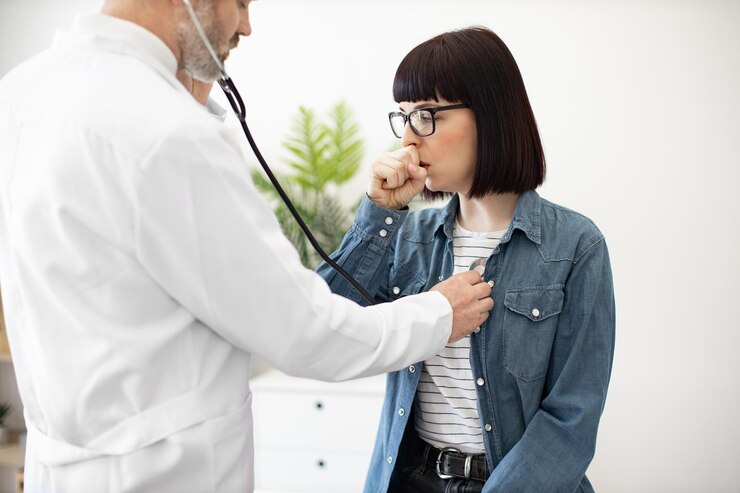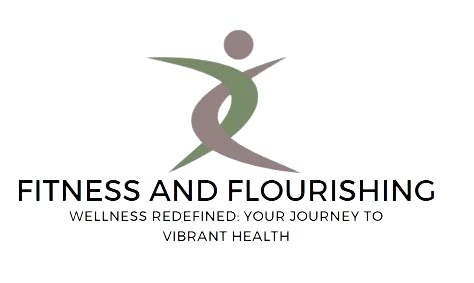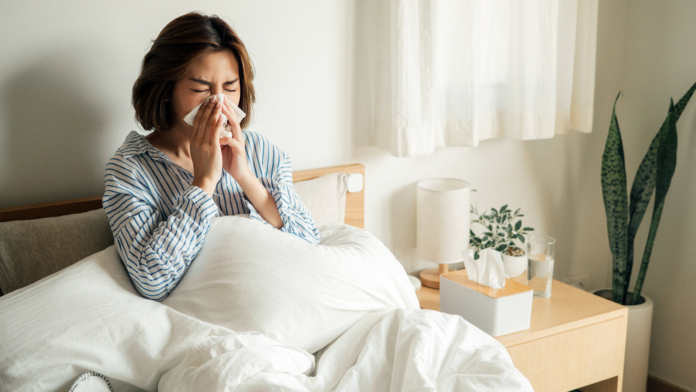Cool Springs Allergy understands how frustrating and debilitating allergies can be. Whether you’re battling seasonal sniffles or year-round allergies that impact your daily life, finding the right treatment can make all the difference. At Cool Springs Allergy, our experienced professionals are dedicated to helping you breathe easy again.
Why are your allergies so bad in the spring?
Allergic rhinitis (hay fever) and nasal allergies aren’t just a nuisance; they’re a major health concern. The American College of Allergy, Asthma, and Immunology reports allergies as the sixth leading cause of chronic illness in the United States. Doctors confirm this impact: “They can make you miserable,” says Dr. Eidelman, describing itchy eyes, congestion, sneezing, and lung irritation. In severe cases, allergies can be debilitating, affecting sleep, focus, and daily activities.
Spring allergies are particularly troublesome because “everything’s in bloom,” explains Dr. Eidelman. Tree pollen explodes in spring, wreaking havoc for those sensitive to it. Geography plays a role, too. Temperate climates have three pollen seasons (spring trees, summer grass, and fall weeds/mold), but these can overlap, creating a “double whammy” for people allergic to tree and grass pollen, according to Dr. Preston. Subtropical areas face longer allergy seasons with no winter frost to stop pollen production. On top of location, weather matters. Inconsistent temperatures can cause pollen release to halt and restart, creating a concentrated allergen load. Moisture and wind further exacerbate the problem by keeping allergies airborne. Climate change adds another layer of misery. Dr. Eidelman points out that rising temperatures have worsened spring allergies over the past two decades, leading to longer, more intense pollen seasons—a worldwide trend.

Spring allergy symptoms
Spring allergies can wreak havoc on your entire body, not just your nose. Head congestion is common, leading to stuffiness, a runny nose, sinus pain, and even headaches. For those with allergic asthma, coughing, wheezing, and shortness of breath can add to the misery. Your eyes won’t be spared either, turning red, itchy, swollen, or watery. A dry, scratchy, or sore throat with post-nasal drip can further irritate, and you might even experience pain when swallowing. Skin issues arise, too, with itching as a telltale sign. Direct contact with allergens can trigger contact dermatitis, an itchy rash with blisters or swelling. To top it all off, fatigue and brain fog can leave you feeling sluggish and out of it.
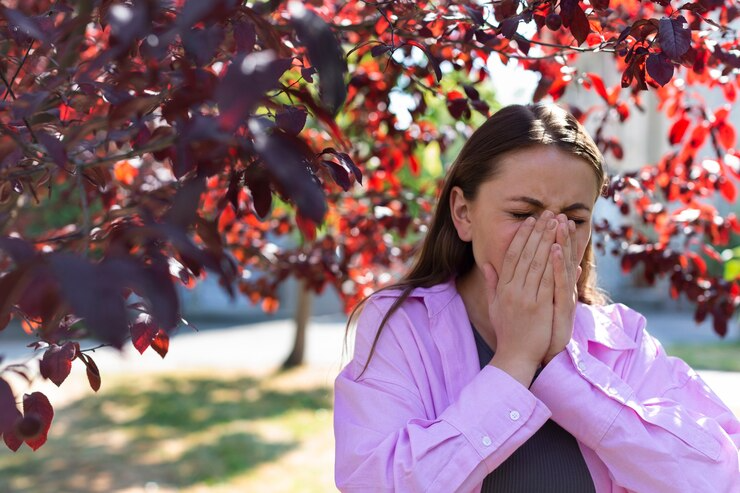
Are spring allergy symptoms unique?
You might wonder if there’s something uniquely awful about spring allergy symptoms. Dr. Preston assures us there isn’t an inherent difference, but we all experience allergies. “Some patients swear spring is their allergy nemesis, with zero fall issues,” he says. “Yet, allergy testing might reveal sensitivity to spring, summer, and fall allergies. So, symptoms are truly individual.” Even the severity of your reaction depends on the number of antibodies you have to a specific allergen, Dr. Preston adds. “Skin tests can’t predict symptom intensity, unfortunately. They only tell us you’re allergic or sensitized. This means someone with high antibody levels to pollen might experience a full-blown attack with a runny nose, itchy eyes, coughing, and wheezing, while someone with lower levels might have mild sniffles.”
Can spring allergies be prevented?
Mild allergies might have you powering through with a sniffle and a box of tissues. However, intense allergies can significantly disrupt your daily life. The good news? There are ways to find allergy relief before the misery sets in. With proactive measures, you can take control and minimize allergy symptoms. By implementing a personalized allergy relief plan, you can experience spring and enjoy the season’s beauty without the sniffles and struggles.
How do you manage spring allergies?
Bothersome allergies can overshadow spring’s beauty. But fear not; there are ways to combat those sniffles and itchy eyes without relying solely on medication. Natural allergy relief can be your first line of defense. Start by tracking pollen counts and limiting outdoor activities when they’re high. Keeping windows closed and using air purifiers indoors can reduce exposure to allergens. A saline nasal rinse can soothe irritated nasal passages, while a cool mist humidifier can ease congestion. Natural supplements like quercetin and local honey may also offer natural allergy relief. By incorporating these strategies, you can significantly reduce spring allergy symptoms and enjoy the season to the fullest.
1. Antihistamines
Antihistamines are the first line of defense for battling spring allergies, but they come in two categories: first-generation and second-generation. The older, first-generation drugs like Benadryl (diphenhydramine) come with a big drawback: drowsiness. This sleepiness can slow your reaction time and impair your ability to perform daily tasks or operate machinery safely, like driving. Dr. Eidelman warns, “You might not even realize the medication is affecting you, but your focus and performance are likely compromised.” Thankfully, there’s a better option. Second-generation antihistamines, like Claritin (loratadine), Allegra (fexofenadine), and Zyrtec (cetirizine), are much less likely to cause drowsiness or may not cause it at all. Dr. Eidelman recommends these newer medications for managing basic allergy symptoms like itching, sneezing, and runny nose.

2. Nasal sprays
Regarding allergy relief medicines, antihistamines may not be the answer for stuffy noses, drippy sinuses, and sinus pressure. Dr. Eidelman recommends switching to topical nasal steroids like Flonase®, Rhinocort®, Nasonex®, or Nasacort® for these symptoms. Unlike antihistamines, these nasal sprays won’t cause drowsiness but require daily use for maximum allergy relief. While they may not provide immediate relief, topical nasal steroids are considered the “gold standard” for moderate to severe nasal allergies due to their effectiveness.
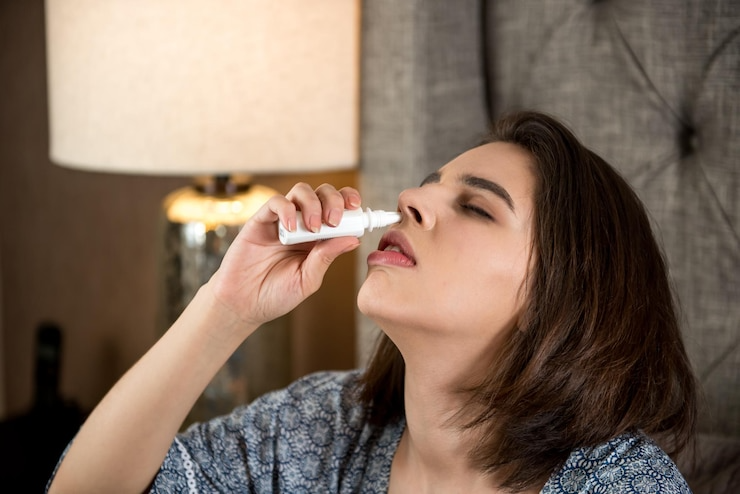
3. Allergy shots
Allergy shots, also known as immunotherapy, offer a long-term solution for allergy relief. By injecting tiny amounts of specific allergens into your body, these shots gradually train your immune system to tolerate the triggers. Over time, you’ll experience significant allergy relief, with fewer and milder symptoms when encountering those substances. This approach not only provides allergy relief in the short term, but it can also lead to lasting relief even after you discontinue the shots.
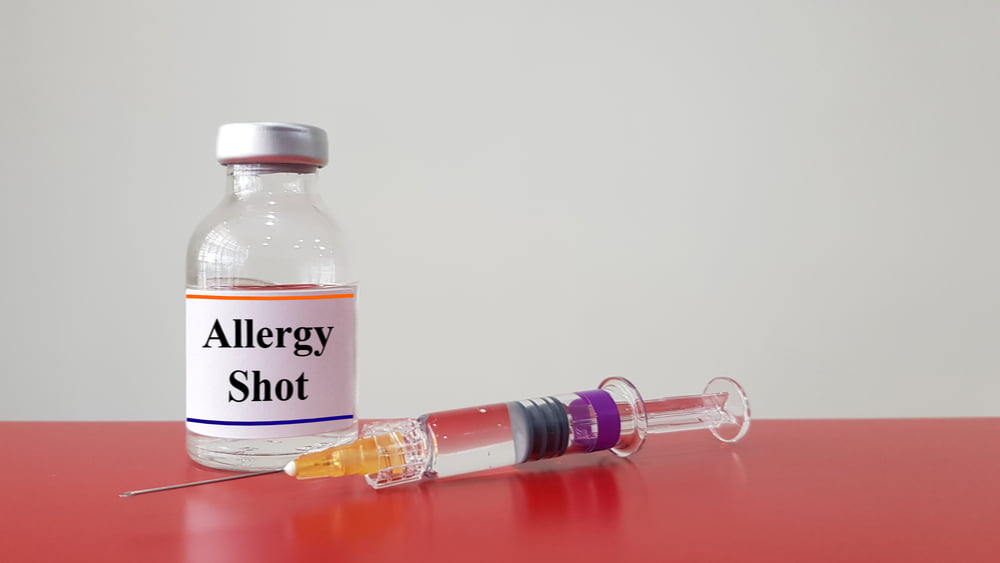
Natural allergy remedies
If allergy shots and long-term medications seem daunting, natural approaches exist to fight those springtime sniffles! Explore natural remedies to manage your allergies. While these methods may not eliminate symptoms, they can provide relief. You might be thinking, “Is coughing a symptom of allergies?” Yes, it is, so finding ways to manage the root cause can bring welcome relief.

When to see a doctor
Spring allergies are common, but that doesn’t mean you should ignore them. Consulting a doctor can be beneficial for several reasons:
- They can ensure your medications won’t interfere with existing health conditions.
- If you’re tired of relying on allergy medicine, a doctor can test you to identify the specific allergens and recommend the most effective treatments. Allergy shots are an option for those seeking an alternative to medication, and a doctor can discuss their suitability.
- A doctor can rule out other conditions that might mimic allergy symptoms but require different treatment approaches.
